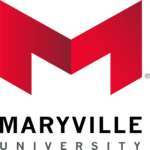Accounting is a fundamental element of any business, big or small. But today’s accountants do more than just crunch numbers, they are integral to a company’s efficiency—informing business strategy, evaluating risks, and assuring the accuracy of financial records.
While most accountants only need a bachelor’s degree in the field to qualify for a role, obtaining a Certified Public Accountant (CPA) license leads to more job opportunities. In every state, CPA licensure requires 150 credit hours of academic coursework, according to the U.S. Bureau of Labor Statistics. Most bachelor’s degree programs in accounting are only 120 credit hours, which means that pursuing a master’s degree in accounting is a popular option for fulfilling the requirement. Accountants may also pursue a graduate degree to hone in on a particular domain, such as in management, government, or auditing.
For those people seeking a flexible way to further their accounting career, Fortune has ranked the best online master’s degree programs in accounting. In total we ranked 11 programs.
Selectivity Score (75%)
While coursework, skilled and seasoned professors, and career services are all important to the strength of a master’s in accounting program, the abilities and motivation of your peers can make all the difference in your program experience. So Fortune evaluated the strength of each program’s incoming class to gain insight into how selective each ranked school is for this type of program.
To calculate the Selectivity Score, we started by looking at the average undergraduate GPA of incoming students. In addition, we looked at the average number of years of work experience of those same students. We also weighted the program’s acceptance rate, as programs that are challenging to get accepted into tend to attract a stronger cohort of students. Graduation rates and retention rates were also considered.
Demand Score (15%)
In most cases, a successful degree program will continue to be able to attract applicants year after year. This is especially true in the case of online degree programs, where prospective students from all over the country can choose to attend a school without moving locations. Additionally, a larger student body also means a larger alumni network. That’s why we considered the one-year enrollment growth of each program and the number of applicants for the 2021-2022 year.
Brand Score (10%)
As accounting degree programs are often housed within business schools, it’s important to consider the notoriety of the institutions when evaluating each program. After all, the brand strength of the school where students attend may lend itself to networking opportunities and end up landing them jobs.
Fortune partnered with Ipsos to survey thousands of business professionals and hiring managers to get their thoughts on specific business schools. Ipsos deployed a survey methodology similar to what it would use if asked by a consumer brands company to evaluate its brand strength. For this research, Ipsos interviewed a total of 2,500 professionals. These professionals work in a corporate role, have attended college and/or an institution of higher education, and know at least two of the schools in our selection.
Ipsos completed the fieldwork in March 2021. The total length of each interview was 13 minutes. The results yielded a 95% confidence interval, which gives us a maximum ±1.96% margin of error. This analysis was done on a regional basis. The exception is the nation’s top 20 business schools (according to the U.S. News & World Report’s latest ranking), which we also measured on a national basis.







